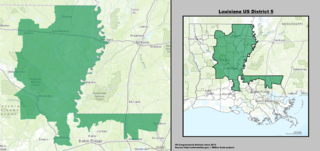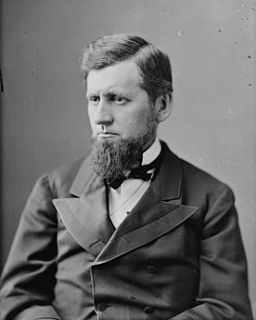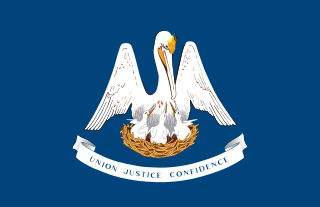
Piyush "Bobby" Jindal is an American politician who was the 55th Governor of Louisiana between 2008 and 2016, and previously served as a U.S. Congressman and as the vice chairman of the Republican Governors Association.

John Leigh "Jay" Dardenne, Jr. is a lawyer and politician from Baton Rouge, Louisiana, who is currently serving as commissioner of administration for Democratic Governor John Bel Edwards. A moderate Republican, Dardenne served as the 53rd lieutenant governor of his state from 2010 to 2016. Running as a Republican, he won a special election for lieutenant governor held in conjunction with the regular November 2, 2010 general election. At the time, Dardenne was Louisiana secretary of state. Formerly, Dardenne was a member of the Louisiana State Senate for the Baton Rouge suburbs, a position he filled from 1992 until his election as secretary of state on September 30, 2006.
Paul Jude Hardy is an American attorney from Baton Rouge, in the U.S. state of Louisiana, who was the first Republican to have been elected lieutenant governor of the U.S. state of Louisiana since Reconstruction. He served in the second-ranking post under Governor Buddy Roemer from 1988 to 1992.

Louisiana's 5th Congressional District is a congressional district in the U.S. state of Louisiana. The district covers most of the northeastern and central portions of the state and much of the northern portions of the Florida parishes. It contains the cities of Monroe and Alexandria.

Lewis Lovering Morgan was an American lawyer and politician from Covington, Louisiana.

The Louisiana gubernatorial election of 1952 was held in two rounds on January 15 and February 19, 1952. Like most Southern states between the Reconstruction Era and the Civil Rights Movement, Louisiana's Republican Party was virtually nonexistent in terms of electoral support.

The Louisiana gubernatorial election of 1959–60 was held in two rounds on December 5, 1959, and January 9, 1960. After an election which featured some of the most racially charged campaign rhetoric in Louisiana political history, Jimmie Davis was elected to his second nonconsecutive term as governor after defeating the Republican candidate, Francis Grevemberg, in the general election.

The Louisiana gubernatorial election of 1924 was held in two rounds on January 15 and February 19, 1924. Like most Southern states between the Reconstruction Era and the Civil Rights Movement, Louisiana's Republican Party was virtually nonexistent in terms of electoral support. This meant that the two Democratic Party primaries held on these dates were the real contest over who would be governor. The 1924 election saw Henry L. Fuqua defeat Hewitt Bouanchaud to become Governor of Louisiana, and saw the beginning of the political rise of Huey P. Long, who came in a surprisingly strong third.

The Louisiana gubernatorial election of 1932 was held on January 19, 1932. Like most Southern states between the Reconstruction Era and the Civil Rights Movement, Louisiana's Republican Party had virtually no electoral support. This meant that the Democratic Party primary held on this date was the real contest over who would be governor. The election resulted in the election of Oscar K. Allen as governor of Louisiana. Louisiana was one of only two states that held the election on a date other than the first Tuesday following the first Monday of November.

The Louisiana gubernatorial election of 1920 was held on April 20, 1920. Like most Southern states between the Reconstruction Era and the Civil Rights Movement, Louisiana's Republican Party had virtually no electoral support. This meant that the Democratic Party primary held on January 20 was the real contest over who would be governor. The election resulted in the election of John M. Parker as governor of Louisiana.

The Louisiana gubernatorial election of 2007 was held on October 20. The filing deadline for candidates was September 6. On the day of the election, all 12 candidates competed in an open jungle primary. With all precincts reporting, Bobby Jindal won the election with 54%.

Jared Young Sanders Sr. was an American journalist and attorney from Franklin, the seat of St. Mary Parish in south Louisiana, who served as his state's House Speaker (1900–1904), lieutenant governor (1904–1908), the 34th Governor (1908–1912), and U.S. representative (1917–1921). Near the end of his political career he was a part of the anti-Long faction within the Louisiana Democratic Party. Huey Pierce Long Jr., in fact had once grappled with Sanders in the lobby of the Roosevelt Hotel in New Orleans.
The Louisiana Democratic Party is the affiliate of the national Democratic Party of the United States in the state of Louisiana.

The United States Senate elections of 1904 and 1905 were elections that coincided with President Theodore Roosevelt's landslide election to a full term. Party share of seats remained roughly the same, when including vacancies and appointments, and the Republicans retained a significant majority over the Democrats.

The Louisiana gubernatorial election of 1908 was held on April 21, 1908. Like most Southern states between Reconstruction and the civil rights era, Louisiana's Republican Party had virtually no electoral support. This meant that the Democratic Party primary held on January 28 was the real contest over who would be governor. This election marked the first time Louisiana used primaries to nominate party nominees. The election resulted in the election of Democrat Jared Y. Sanders, Sr. as governor of Louisiana.

The Louisiana gubernatorial election of 1900 was held on April 17, 1900. Like most Southern states between Reconstruction and the civil rights era, Louisiana's Republican Party had virtually no electoral support. As Louisiana had not yet adopted party primaries, this meant that the Democratic Party convention nomination vote was the real contest over who would be governor. However, Donelson Caffery, Jr. ran a strong third party campaign. The election resulted in the election of Democrat William Wright Heard as governor of Louisiana.

The Louisiana gubernatorial election of 1896 was held on April 21, 1896. Like most Southern states between Reconstruction and the civil rights era, Louisiana's Republican Party was virtually nonexistent in terms of electoral support. As Louisiana had not yet adopted party primaries, this meant that the Democratic Party convention nomination vote was supposed to be the real contest over who would be governor. However, the Republicans and Populists put forward a joint candidate, John N. Pharr. With combined Republican and Populist support Pharr garnered 43% of the vote, although the Democratic nominee, Murphy J. Foster was elected with 57% of the vote.

The Louisiana gubernatorial election of 1892 was held on April 19, 1892. Like most Southern states between Reconstruction and the civil rights era, Louisiana's Republican Party was virtually nonexistent in terms of electoral support. In addition, the Republican Party had split into two factions, each supporting a different candidate. As Louisiana had not yet adopted party primaries, this meant that the Democratic Party convention nomination vote was supposed to be the real contest over who would be governor. At the convention, pro-lottery former Governor Samuel D. McEnery was nominated. As a result of the nomination of a pro-lottery candidate, a group of anti-lottery Democrats nominated their own candidate, State Senator Murphy J. Foster. In addition to the four candidates already mentioned, the increasingly popular Populists nominated R. H. Tannehill and their candidate. Despite all of this, Senator Foster was elected with 45% of the vote with a comfortable 19% margin between him and McEnery, who placed second. This election marked the last time until 1979 that the official Democratic Party nominee was defeated.

A general election was held in the U.S. state of Louisiana on October 24, 2015. All of Louisiana's executive officers, and both houses of the Louisiana State Legislature were up for election. Under Louisiana's jungle primary system, all candidates appeared on the same ballot, regardless of party and voters voted for any candidate, regardless of their party affiliation. Since no candidate received a majority of the vote during the primary election, a runoff election was held on November 21, 2015 between the top two candidates in the primary. Louisiana is the only state that has a jungle primary system.













